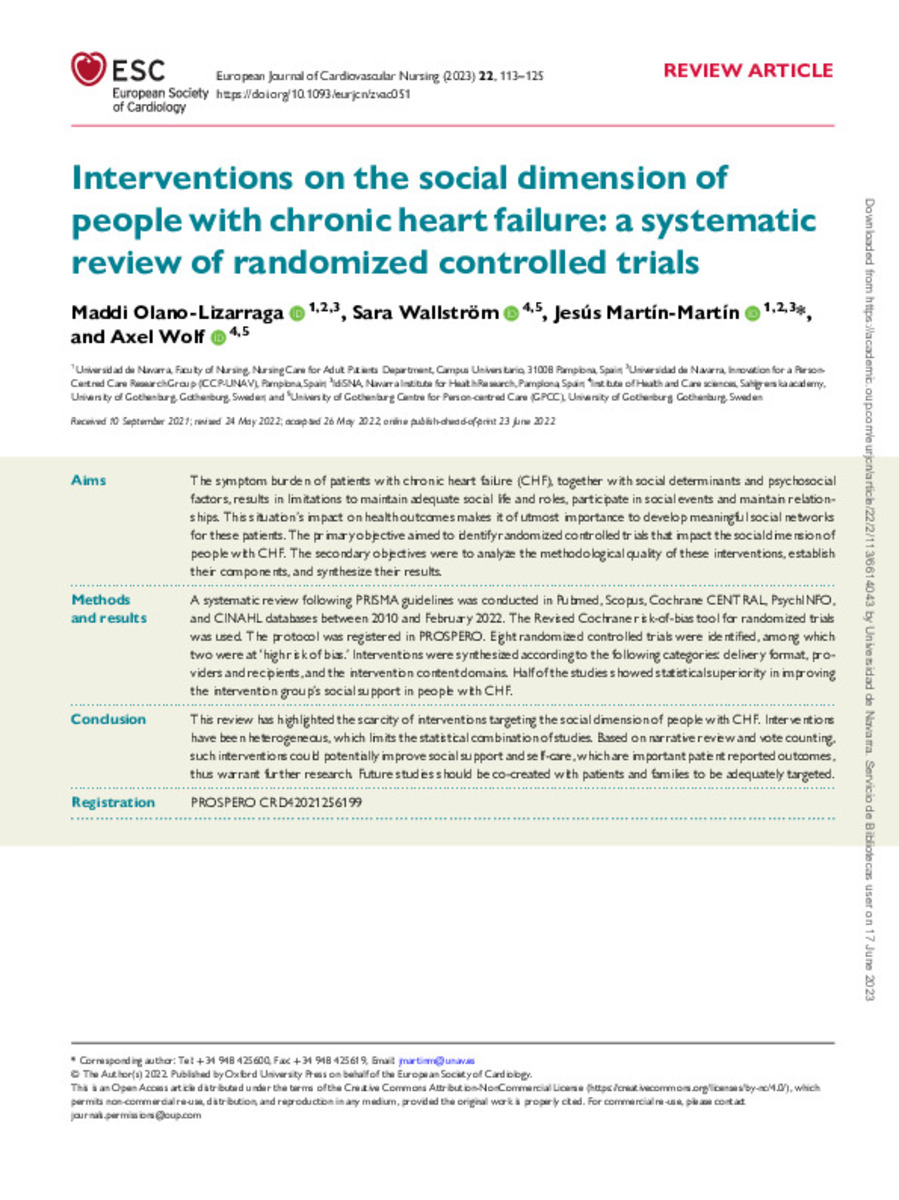Interventions on the social dimension of people with chronic heart failure: a systematic review of randomized controlled trials
Keywords:
Chronic heart failure
Social isolation
Social support
Social participation
Systematic review
Randomized controlled trials
Publisher:
Oxford University Press
Note:
This is an Open Access article distributed under the terms of the Creative Commons Attribution-NonCommercial License
Citation:
Olano-Lizarraga, M. (Maddi); Wallström, S. (Sara); Martín-Martín, J. (Jesús); et al. "Interventions on the social dimension of people with chronic heart failure: a systematic review of randomized controlled trials". Journal of Cardiovascular Nursing. 22 (2), 2022, 113 - 125
Statistics and impact
0 citas en

0 citas en

Items in Dadun are protected by copyright, with all rights reserved, unless otherwise indicated.








